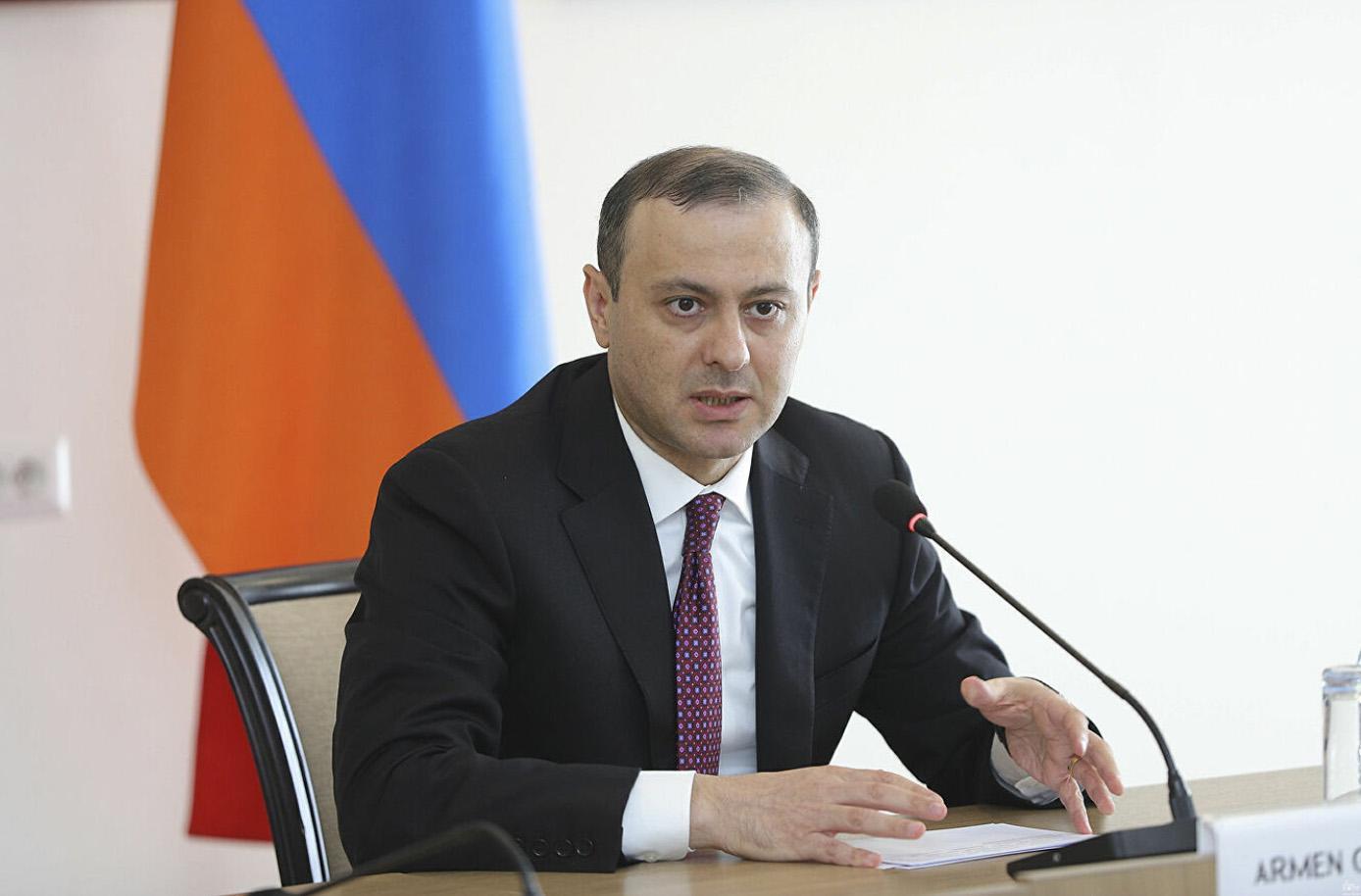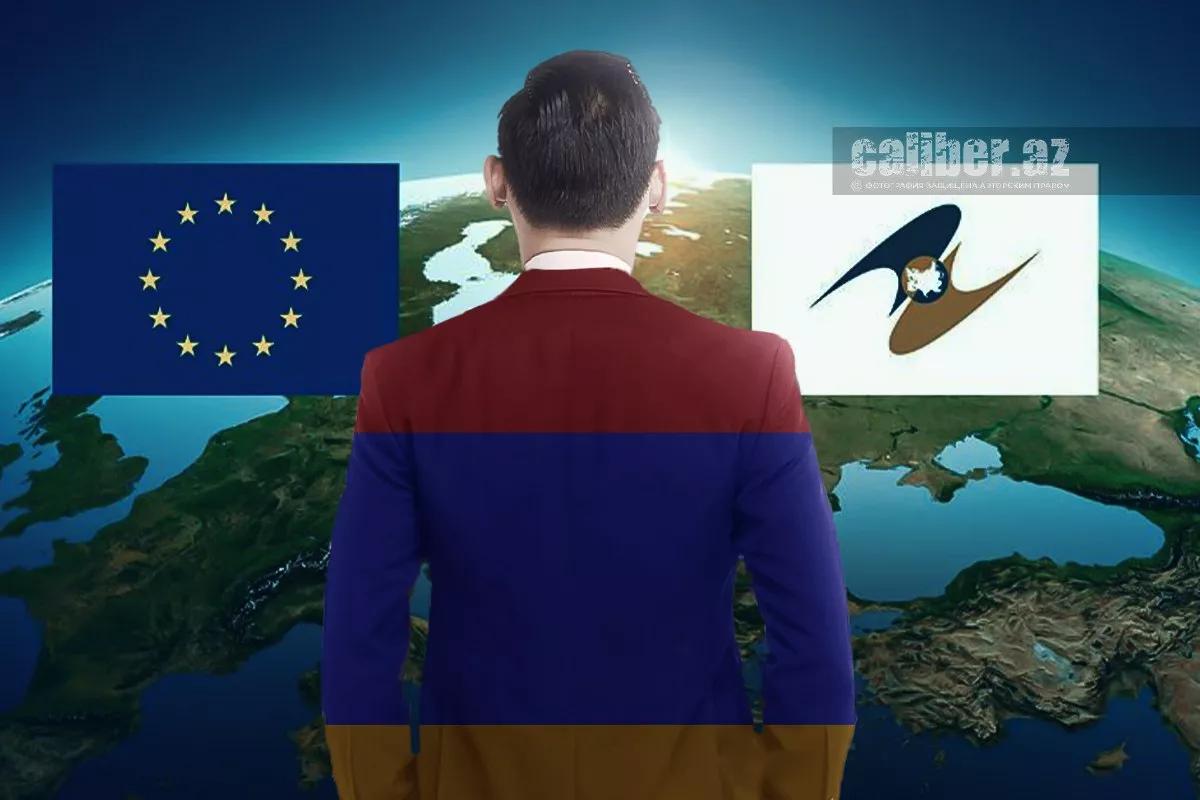Armenia in search of balance Navigating between Russia and the West
It appears that the tension in Armenian–Russian relations, triggered by Yerevan’s pro-Western policies, is gradually easing. This is indicated by the renewed participation of Armenian officials in certain Eurasian events organised under Moscow’s auspices. In particular, Armenia’s Security Council Secretary, Armen Grigoryan, not only attended the 13th meeting of CIS Security Council Secretaries on November 5 in Moscow but also delivered a speech.
This is quite a telling development, considering that Grigoryan is known as one of the strongest supporters of Yerevan’s pro-Western policy. During the period of strained relations with Russia, he repeatedly stated that Moscow posed a threat to Armenia’s security, even suggesting that the country might withdraw from Russian-led military blocs — particularly the Collective Security Treaty Organisation (CSTO).
In November 2023, Grigoryan went as far as staging a diplomatic demarche against Russia. Skipping a meeting with his CIS counterparts in Moscow, he instead travelled to Brussels to attend the forum “Strategic Future of Armenia — Armenia-Europe Conference”. There, he met with European Commission President Ursula von der Leyen's chief of staff, Björn Seibert — a move that clearly underscored Yerevan’s foreign policy priorities.
Naturally, this did not go unnoticed in Moscow. Russian Foreign Ministry spokeswoman Maria Zakharova commented: “Draw your own conclusions, but Armenia was represented by its ambassador in Russia and participated in the meeting, while the level of representation is determined by the state itself.”

Armen Grigoryan’s recent visit to Moscow appears to signal that Armenia is reassessing its relationship with Russia, pointing to a possible thaw in Armenian–Russian ties. However, despite the renewed participation of Armenian officials in Eurasian events, Yerevan’s pro-Western orientation continues to remain firmly on the agenda.
It is evident that the Armenian leadership is now seeking to strike a balance in its foreign policy while keeping national interests at the forefront. Grigoryan’s remarks in Moscow reflected precisely this approach.
Speaking on the importance of the CIS platform for fostering trust and stability in the region, he noted that it was the Washington agreements that had brought peace to the South Caucasus. At the same time, he highlighted the significance of the TRIPP initiative — the “Trump Route for International Peace and Prosperity” — not only for the South Caucasus but also for a wider geographic area.
“Within the framework of TRIPP, we aim to create an atmosphere of genuine cooperation and mutual benefit. The goal of this program is to build connections not only between Armenia and Azerbaijan but also with other CIS countries, integrating Armenia’s transport routes into broader networks, including the Eurasian space. This opens up new opportunities for trade, logistics, and mobility, while strengthening interdependence — an important factor in ensuring security,” Grigoryan stated.

On the one hand, the Security Council Secretary highlighted the benefits that the TRIPP initiative could bring to the Eurasian region, while subtly hinting that the normalisation process between Baku and Yerevan is proceeding quite effectively. This approach aligns with the current strategy of the Armenian authorities, which, as noted earlier, aims to establish a balanced foreign policy. In other words, strengthening ties with Russia does not preclude European integration or close relations with Western countries.
Prime Minister Pashinyan’s recent statements also reflect this position. He has said that Armenia intends to maintain — and even strengthen — its relations with Russia. He emphasised that Yerevan’s goal is not to sever ties with Moscow but to pursue a balanced foreign policy that includes cooperation with Russia, the West, and neighbouring countries. It is also worth noting that even during the period of tension between Moscow and Yerevan, the Armenian government consistently reaffirmed its intention to remain a member of the Eurasian Economic Union (EAEU).
Overall, these statements by Armenian officials suggest that Yerevan is now trying to reach a compromise with Moscow — relying primarily on economic instruments such as TRIPP — a pragmatic and calculated move in the current geopolitical context.








